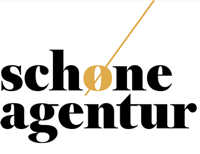Sold to Sweden, Norway and Denmark: BLOODBOOK by Kim de l’Horizon
My complete admiration to the group of translators out there for the work ahead #namethetranslator !!!
In fall 2022, BLUTBUCH by Kim de l’Horizon won the German Book Award, the Swiss Book Award and the Jürgen Ponto Foundation Literature Prize. I am absolutely thrilled to announce that Brombergs in Sweden acquired rights!
rights sold to: Club Editor (Catalan); OceanMore (Croatian); Host (Czech); Forlaget etcetera (Danish); De Geus (Dutch); Farrar, Straus & Giroux (English World); Julliard (French); Psichogios (Greek); Schocken (Hebrew); Európa Könyvkiadó (Hungarian); Il Saggiatore (Italian); Cappelen Damm (Norwegian); Literackie (Polish); Premedia (Slovak); De Conatus (Spanish World); Brombergs (Sweden)
This isn’t a book about emancipation — this book is emancipation itself
The first literary and cultural work to take on the topic of genderfluid identity/transgenderism: clever, painful, tender, melancholic, exuberant
A Book to Shake Perceptions and Certitudes – a Book that Will Change You
The book’s unnamed protagonist, who feels neither male nor female, is prompted by their grandmother’s slide into dementia to investigate their family history. The more their grandmother forgets, the more the narrator tries to remember: what was it in their childhood that prompted them to feel so alienated from their body? Does it have something to do with the family’s hushed-up history of incest? Why is their grandmother struggling to differentiate between herself and her sister who died young? And what happened to their youngest great aunt who disappeared when she was young?
Tracking down answers to these questions proves difficult because the family has a habit of keeping quiet about such matters. At the heart of it all is the question of self-determination: how to exist when your own body is never a given, but is instead constantly having to be negotiated?
Singular in its style and form, Bloodbook deals with our intangible heritage, the things we carry without being asked: stories, genders, identities, trauma, languages, class affiliations. Kim de l’Horizon searches for other kinds of knowledge and traditions, other stories and ways of becoming: feminist, witchy, bought with blood, and those that leave a hole in their wake. De l’Horizon leaves the linear, monotonous form of family stories behind and opts for a fluid, streaming form of writing which softens instead of pinning down.
